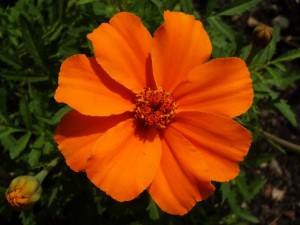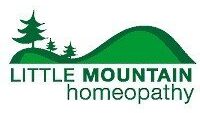
Natural treatment of depression with no drug side effects or creation of drug dependency. Our medicines work together with and can be taken along with standard pharmaceutical medications. Our medicines are safe, non-toxic, and gentle on the body. Homeopathy is effective for treating all types of depression, including postpartum depression, seasonal affective disorder (SAD) and suicidal depression.
Scientific Studies
Abstract
Treatment-resistant major depression (TRD), defined as an insufficient response to at least two antidepressant treatments, is usually treated with antidepressants, psychotherapy, electroconvulsive therapy, repetitive transcranial magnetic stimulation, and vagus nerve stimulation or combinations of these. However, the response rate is modest and, on many occasions, insufficient or nonexistent. Here, we describe the case of a 19-year-old woman with a history of TRD, treated for depression since the age of five years. Her symptoms were resistant to fluoxetine, escitalopram, atomoxetine, and psychotherapy. Individualized homeopathic treatment with Staphisagria, Nux vomica, Arsenicum album, and Lachesis trigonocephalus was started. Posology was carried out in 200CH dynamizations. Treatment was prescribed for four months. This led to an immediate improvement in mood and a sustained and gradual reduction of depressive symptoms and, consequently, a reduction and then cessation of medication with antidepressants and psychotherapy. At follow-up eight months later, the patient is free of depression and medication. This case study reconfirms the usefulness of homeopathy in the treatment of depression. It also suggests that individualized homeopathic treatment may be useful in cases of treatment-resistant depression.
Abstract
Introduction
Depression is a common reason for patients to consult homeopaths. This review aims to assess the efficacy, effectiveness and safety of homeopathy in depression.
Methods
Thirty databases/sources were used to identify studies reporting on homeopathy in depression, published between 1982 and 2016. Studies were assessed for their risk of bias, model validity, aspect of homeopathy and comparator.
Results
Eighteen studies assessing homeopathy in depression were identified. Two double-blind placebo-controlled trials of homeopathic medicinal products (HMPs) for depression were assessed. The first trial (N = 91) with high risk of bias found HMPs were non-inferior to fluoxetine at 4 (p = 0.654) and 8 weeks (p = 0.965); whereas the second trial (N = 133), with low risk of bias, found HMPs was comparable to fluoxetine (p = 0.082) and superior to placebo (p < 0.005) at 6 weeks. The remaining research had unclear/high risk of bias. A non-placebo-controlled RCT found standardised treatment by homeopaths comparable to fluvoxamine; a cohort study of patients receiving treatment provided by GPs practising homeopathy reported significantly lower consumption of psychotropic drugs and improved depression; and patient-reported outcomes showed at least moderate improvement in 10 of 12 uncontrolled studies. Fourteen trials provided safety data. All adverse events were mild or moderate, and transient. No evidence suggested treatment was unsafe.
Conclusions
Limited evidence from two placebo-controlled double-blinded trials suggests HMPs might be comparable to antidepressants and superior to placebo in depression, and patients treated by homeopaths report improvement in depression. Overall, the evidence gives a potentially promising risk benefit ratio. There is a need for additional high quality studies.
Abstract
Background
Despite controversy regarding homeopathy, some patients consult homeopaths for depression. Evidence is required to determine whether this is an effective, acceptable and safe intervention for these patients.
Methods
A pragmatic trial using the “cohort multiple randomised controlled trial” design was used to test the effectiveness of adjunctive treatment by homeopaths compared to usual care alone, over a period of 12 months in patients with self-reported depression. One third of patients were randomly selected for an offer of treatment provided by a homeopath. The primary outcome measure was the Patient Health Questionnaire (PHQ-9) at 6 months. Secondary outcomes included depression scores at 12 months; and the Generalised Anxiety Disorder (GAD-7) outcome at 6 and 12 months.
Results
The trial over-recruited by 17% with a total of 566 patients. Forty percent took up the offer and received treatment. An intention-to-treat analysis of the offer group at 6 months reported a 1.4-point lower mean depression score than the no offer group (95% CI 0.2, 2.5, p = 0.019), with a small standardized treatment effect size (d = 0.30). Using instrumental variables analysis, a moderate treatment effect size in favour of those treated was found (d = 0.57) with a between group difference of 2.6 points (95% CI 0.5, 4.7, p = 0.018). Results were maintained at 12 months. Secondary analyses showed similar results. Similar results were found for anxiety (GAD-7). No evidence suggested any important risk involved with the intervention.
Conclusion
This trial provides preliminary support for both the acceptability and the effectiveness of treatment by a homeopath for patients with self-reported depression. Our results provide support for further pragmatic research to provide more precise estimates of treatment effect.
In this trial, 12 subjects suffering from major depression, social phobia or panic disorder, were treated for 7 to 80 weeks with individually prescribed homoeopathic remedies and assessed on a clinical global improvement scale (CGIS) or self-rated SCL-90 scale and the Social Phobia Scale (SPS). Subjects were given homoeopathic treatment either because they asked for it directly or because conventional treatment had been unsuccessful. The overall response rates for homoeopathy were 58% on the CGIS and 50% on the SCL-90 and SPS.
Homeopathy Can Spoil a Girl: Medicine for Depression by Joette Calabrese

She was one of those women who had everything: a loving husband, beautiful, healthy children, a well-run, stylish home, and intelligence to boot. She considered her life in order and often pondered it with satisfaction. She was slightly spoiled.
It wasn’t always that way though. Only fifteen years earlier Randy was single and suffering from debilitating depression, anxiety attacks and chronic fatigue. These were not the typical premenstrual blues and occasional anxiety attacks; they were the overwhelming, life-altering sort.
Her life was bulging with medical drama and constant searching for answers. “Why,” she would whimper, “is this happening to me?” The answers were vague and confusing.
From doctor to doctor she traveled only to find her inescapable illness deepening with each new medication.
Then one day, purely by accident, a friend mentioned that a relative had used homeopathy which resulted in a cure of his depression and fatigue.
It was an easy decision. She schedule a discussion with the same homeopath only half believing anything could save her from her life of her chronic mental suffering.
The homeopath told her that each medication she had been taking was concealing a symptom that was not only causing more serious ones but was suppressing her body’s ability to adjust to her condition. Once the correct remedy was determined, her sufferings would no longer be veiled but slowly melt away one by one.
The day or so after her first dose of Aurum metallicum 200 was a remarkable one. It so happened that she hoped she could eke out a day of one simple task. She simply wanted to organize a file she was compiling to build a case for social security benefits since she was no longer capable of work.
She had grown accustomed to measuring her time and tasks according to what her symptoms allowed. Most days were relegated to about an hour or two of productive time while the remainder was spent napping, peppered with anxiety attacks and weeping.
This day was different. Instead of the expected, Randy found herself organizing other files, too, and even wandering into the kitchen and making soup from scratch.
This was a once-relished task that had also been left behind due to her mounting fatigue. Yet, here she was working and providing herself with a nourishing meal! When she finished lunch, she noticed the pantry needed tidying. Instead of postponing the task as usual, she took it on with renewed gusto. “Hey,” she thought, “I remember this feeling. . . it’s the way I used to feel; energetic, capable and motivated.”
After the last jar of beans was wiped and returned to the shelf, she scanned the room for another undertaking. Maybe I’ll just start a load of laundry, she considered.
And so the day went: task after task accomplished with ease, unlike any other day for what seemed a life time.
That night, as she lay her head on the pillow she took pleasure in reflecting on the accomplishments of the day and only hoped this had something to do with the homeopathic remedy.
“Nah, just a fluke,” she decided, and fell deeply asleep.
Yet, upon awakening the next morning, despite the cold, damp weather, a factor that had always worsened her depression, she prepared herself for another productive day.
This happened day after day for nearly a fortnight when finally she experienced a panic attack. She wept a little, too; more out of grief that her new well-being might be coming to an end.
Then something uncommon happened. Just when the panic was coming to the usual breathless pitch, it abruptly stopped. And instead of the telltale exhaustion there was a sense of calm.
And so it went. Day after day, week after week, the depression appeared only occasionally, now shorter, now less dramatic. Her desire to go out and her stamina returned. The prescription medications she once depended on had now been eliminated; so had the over-the-counter ones, and she began experiencing the life she always envisioned.
At a friend’s house—the one who had earlier shared the tip on homeopathy, she was introduced to a compelling man. Innocently, the friend wore strong perfume, a previous trigger to anxiety, yet none of this made Randy ill.
Instead she was particularly clever and charming that night, which caught his attention. No more fogginess and anxiety. Her intelligence sparkled.
A year later, they celebrated their wedding.
Their marriage has been blessed with two children who are both treated with homeopathy.
Depression is a thing of the past. Randy has a good life, rich with the blessings of a family and vigorous health. It only looks from the outside like a privileged life was bestowed upon her. There is an assumed excellence that comes from abundant health that she and her family have come to enjoy.
Indeed, homeopathy has spoiled her.
